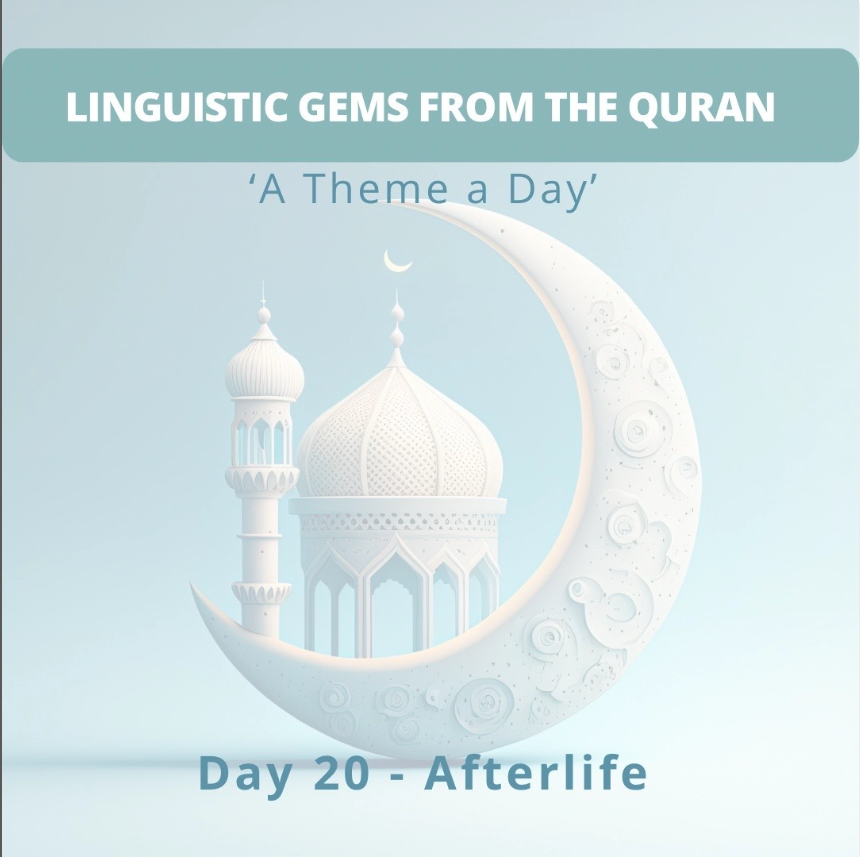 The Qur’an is known for its linguistic beauty and eloquence, and one of the striking features of its verses is the use of adjective pairs at the end of verses.
The Qur’an is known for its linguistic beauty and eloquence, and one of the striking features of its verses is the use of adjective pairs at the end of verses.
These pairs often describe Attributes of Allah or His creation, adding depth and meaning to the text. These pairs typically share a similar pattern of consonants and vowels, such as عَليمٌ حَكيمٌ ‘aleemun hakeemun.
In Surah Ibrahim, verse 5, Allah says:
وَلَقَدْ أَرْسَلْنَا مُوسَىٰ بِـَٔايَـٰتِنَآ أَنْ أَخْرِجْ قَوْمَكَ مِنَ ٱلظُّلُمَـٰتِ إِلَى ٱلنُّورِ وَذَكِّرْهُم بِأَيَّىٰمِ ٱللَّهِ ۚ إِنَّ فِى ذَٰلِكَ لَـَٔايَـٰتٍۢ لِّكُلِّ صَبَّارٍۢ شَكُورٍۢ
And We certainly sent Moses with Our signs, [saying], “Bring out your people from darknesses into the light and remind them of the days of Allāh.” Indeed in that are signs for everyone patient and grateful.
Here, we find the adjective pair “patient” (صبّار) and “grateful” (شكور) used to describe those who can find signs in Allah’s message.
In Arabic, words often share a similar pattern of consonants and vowels, such as عَليمٌ حَكيمٌ (‘aleemun hakeemun).
In the example from verse 5, the word for ‘patient’ (صبّار) follows a pattern with a shaddah on the second root letter, followed by an alif. In contrast, the word for ‘grateful’ (شكور) is presented in a different pattern, with a letter waw between the second and third root letters. Although both words could have been presented in the same pattern for assonance – صَبور also means ‘patient’ -, there is a stylistic reason for the choice of different patterns.
Word patterns in Arabic often convey additional meaning. The pattern of the word صبّار is an exaggerated form of the adjective, indicating abundance. In contrast, the pattern of the word شكور also represents an exaggerated form but signifies permanence.
The choice of these two patterns provides insight into the nature of patience and gratitude.
Allah chose the pattern for صبّار (patience) that indicates abundance because patience is essential during times of difficulty and hardship. Our souls cannot endure these challenges indefinitely, so the use of a pattern that signifies abundance suggests that having a lot of patience is enough, and we do not need it permanently.
On the other hand, gratitude is essential for recognizing the countless blessings we receive. As these blessings are continuously present, gratitude is required permanently. Therefore, the most fitting pattern for the word شكور (grateful) is the one that signifies permanence, highlighting the ongoing need for thankfulness in our lives.
The Qur’an’s linguistic beauty and eloquence are evident in the deliberate choice of word patterns and their meanings.
The example from Surah Ibrahim, verse 5, showcases the depth and wisdom behind the adjective pair “patient” (صبّار) and “grateful” (شكور), illustrating how the choice of different patterns adds layers of meaning to the text. By understanding the nuances of the Arabic language and the reasons behind these choices, we can gain a deeper appreciation for the divine message and guidance found in the Qur’an.
As we continue to study and reflect upon the Qur’an, let us keep in mind the beauty and precision of its language, and strive to embody the qualities of patience and gratitude in our own lives. Ultimately, it is through this understanding and practice that we can draw closer to Allah and experience the transformative power of His Word.
And Allah knows best.
